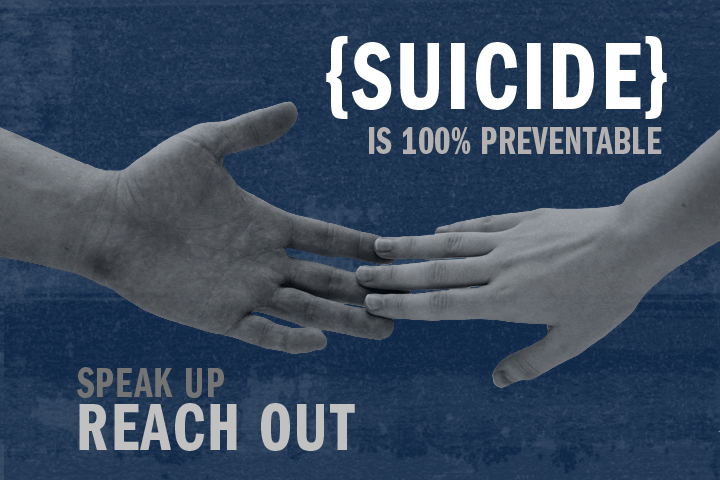
Buzz and Elaine Blackett’s son, David, ended his own life on February 27, 2011, when he was a student at Colorado College in Colorado Springs. Buzz spoke about his son’s suicide in an emotional tribute during a reception held last week on the campus before I gave a lecture later that night.
Buzz recalled how David had been diagnosed with a mental illness in his teens, how he had kept it secret from his classmates, and how he had desperately wanted to be “normal.” While in college, David decided to stop taking his medication and soon spiraled into a depression that proved fatal.
Suicide is the second leading cause of death among college students and the main trigger is untreated depression.

Before the reception, I met with Buzz and Elaine and was struck by their bravery in speaking out about their son’s death. Both were clearly grieving and in pain. Yet, they came to Colorado specifically for my lecture and to thank David’s former classmates and friends for keeping their son’s memory alive on campus.
Kathleen Carroll, one of David’s close friends, started a group called GROW, after David’s death. In an interview with the student newspaper, The Catalyst, she explained that she and David both suffered from depression. But neither wanted to be labeled “mentally ill.” They were keenly aware of the stigma.
“I didn’t want to be known as the ‘depression girl,” Carroll said. “Now I don’t care at all about that….” Carroll said that depression is just like asthma or another kind of problem where you may need help and treatment. While she didn’t want to be associated with the condition initially, David Blackett’s death changed this opinion for her and helped her start a group where CC students can talk about the problems on their minds…”
GROW is not the only group that now meets regularly on the campus. SPILL is a national peer-run support group that encourages college students to talk to each other about any issue that is troubling them, whether they are upset about bullying, sexual harassment or everyday pressures. Colorado College also has DAWG, an acronym for Disabilities Awareness Group. Its purpose is to educate students about their peers with disabilities.
The National Alliance on Mental Illness Colorado Springs Chapter invited me to campus to talk about the need for mental health reforms. The college and a local mental health provider, AspenPointe, help sponsor the free-to-the-public event. Students from GROW, SPILL and DAWG all participated.
But it was Buzz and Elaine who made the most poignant presentation.
It was difficult to listen to Buzz talk about the hole in his heart and to see the tears in Elaine’s eyes. But their dignity, genuine thankfulness to students, and their willingness to discuss David’s death was a reminder to me of how powerful personal testaments can be.
It is easy to walk to the other side of the street when you encounter a homeless person with schizophrenia. It is easy to ignore someone who has bipolar disorder and is acting oddly. Telling someone with depression to “get over it” and “pull yourself up by the bootstraps” may sound like tough love.
But when those individuals take on a human face, it is not so easy to ignore, criticize or judge them. David Blackett is a human face. My son is another. When you know the person who is homeless and delusional, when you know the person who is acting oddly, and when you know the individual who is so despondent that suicide seems to him as the only solution — everything changes.
That is why it is so important to show these human faces with others. The Blacketts are fighting stigma by standing up and candidly discussing their son’s struggle with his mental disorder. They are asking: What can we do to save other David’s who are in pain?
It became clear when I spoke to students, other parents, and professors at the school that David’s death sounded an alarm bell that is being heard.
When the student newspaper asked Kathleen Carroll why she had feel compelled to start GROW, she said:
“David died, and it was such a tragedy…I didn’t want that to happen to anyone else.”
People ask me: how do we fight stigma? Buzz and Elaine are showing us.



